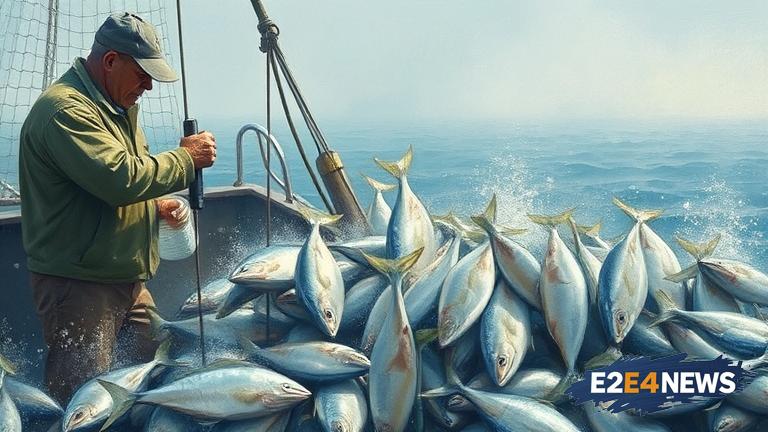The menhaden, a small oily fish, plays a crucial role in the marine ecosystem, serving as a vital food source for numerous larger fish species, birds, and mammals. However, the menhaden fishing industry, which reduces the fish into fishmeal and fish oil for use in animal feed and human supplements, has been expanding rapidly. This expansion has raised alarms among environmentalists and scientists, who warn that the industry’s practices could have devastating consequences on the marine ecosystem. The primary concern is that the large-scale removal of menhaden could disrupt the food chain, leading to population declines among species that rely on them for food. Furthermore, menhaden are also crucial for maintaining the health of marine habitats, as they help to filter the water and maintain the balance of algae growth. Despite these concerns, the menhaden fishing industry continues to operate with relatively little regulation, leading to calls for a moratorium on harvesting until further research can be conducted. Scientists are urging for comprehensive studies to assess the impact of menhaden harvesting on the marine ecosystem, including its effects on biodiversity, water quality, and the overall health of the ocean. These studies would provide critical insights into the sustainability of the menhaden fishing industry and inform policymakers on how to regulate it effectively. The demand for a halt on menhaden harvesting is not only coming from environmental groups but also from recreational fishermen, who are concerned about the decline of their target species due to the lack of menhaden. The economic implications of a moratorium on menhaden harvesting are also being considered, as the industry provides employment and income for many communities. However, proponents of the moratorium argue that the long-term benefits of preserving the marine ecosystem outweigh the short-term economic costs. The menhaden fishing industry is primarily located in the United States, with the majority of the catch coming from the Atlantic coast. The industry is regulated by the Atlantic States Marine Fisheries Commission (ASMFC), which has implemented some measures to manage the fishery, but many argue that these measures are insufficient. In response to growing concerns, some states have begun to take action, with Virginia recently implementing a moratorium on menhaden harvesting in its coastal waters. As the debate over menhaden harvesting continues, it is clear that a comprehensive and science-based approach is needed to ensure the long-term sustainability of the marine ecosystem. This includes not only assessing the impact of menhaden harvesting but also exploring alternative and more sustainable practices for the industry. Ultimately, the fate of the menhaden and the marine ecosystem will depend on the ability of policymakers, scientists, and industry stakeholders to work together to find a solution that balances economic and environmental needs.
